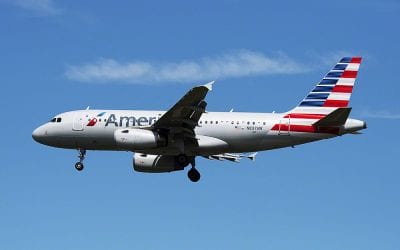“Interline agreement” is one of those jargon terms that might seem pretty meaningless to outsiders. So anyone reading that Delta Air Lines and American Airlines have ended their interline agreement might shrug and say, “so what?”
Much of the time, interline agreements don’t matter. Until they do. Unfortunately for consumers, they matter most when things go wrong.
An interline agreement does three things:
1. It allows airlines to check baggage on connecting flights.
2. It allows airlines to issue single tickets with each other’s flights.
3. It allows airlines to protect each other’s passengers when flights are delayed or canceled.
Most people don’t make connections between different airlines anymore, except with codeshare partners, so the first isn’t a big deal. Sometimes, a traveler might want a ticket with an outbound flight on one carrier and a return flight on another, but it’s not that difficult to issue two separate tickets. (The main disadvantage with two tickets is that it means two fees are charged if a ticket is changed.) But it’s the last one that really matters.
Before deregulation in 1978, there was something called “Rule 240,” which dictated that an airline with a delayed or canceled flight had to transfer passengers to another carrier if that second carrier could get passengers to the destination more quickly than the original airline. While the rule doesn’t exist any more, most legacy carriers still follow it.
Since an airline has to reimburse another airline for taking its passengers, they almost never offer the option of switching carriers first when there’s a problem. In fact, they may suggest an overnight instead. But they can and do put travelers on competing airlines, especially when asked directly by a passenger or travel agent.
A couple of years ago, I was traveling with my family via Chicago in December. When we missed a connection, the United agent at the Red Carpet Club said there were no seats back to San Francisco until the next day.
Accessing my agency’s reservation system on my laptop, I found seats on American, told the customer service agent, and she was able and willing to exchange the tickets. Problem solved.
This sort of interline rebooking happens frequently during bad weather. During an ice storm in Charlotte, I suggested to a cranky client with a connection on US Airways that he ask for United flights via Chicago. He insisted US Airways wouldn’t do it, but called me back with boarding passes about 10 minutes later.
When he asked why, I said, “because that’s what airlines do.” United got some money out of the tickets, US Airways got their passengers where they were going. And next time, US Airways might reciprocate because it might be O’Hare with the problem.
Now, Southwest and many newer carriers have never had interline agreements with other airlines. But the agreements are one reason I’ll sometimes suggest the older, major airlines (known as legacy carriers) to clients. With Southwest or smaller carriers that don’t have interline agreements, options are limited.
Delta and American, which between the two of them have taken over a number of other airlines (Northwest, TWA, Western, Republic, US Airways, etc.) have always had an agreement. But now they have an issue about money. Delta wanted more money for American passengers; American balked.
Both carriers, for now, are keeping their other interline agreements, so they have options. But take the case of someone flying into an American or Delta hub on the other carrier. If a Delta flight into or out of Dallas is canceled or delayed, American might have the only good options. Ditto for an American flight into or out of Minneapolis.
The travel industry changes constantly. American and Delta could “kiss and make up.” Although it’s also possible, with airlines trying to cut costs and corners wherever they can, that other airlines could follow suit to do away with these interline agreements.
Of course, Delta and American will say they’ll still be able to take care of passengers when there are flight problems. But it doesn’t matter. Even if not having an interline agreement results in passengers being stranded overnight or longer, the industry is consolidated enough that consumers have limited options for taking their business elsewhere in the future.
So once again, it comes down to options. And when flights are canceled or delayed, especially around holidays, passengers are losing options — when they need all they can get.
Janice Hough is a California-based travel agent a travel blogger and a part-time comedy writer. A frequent flier herself, she’s been doing battle with airlines, hotels, and other travel companies for over three decades. Besides writing for Travelers United, Janice has a humor blog at Leftcoastsportsbabe.com (Warning, the political and sports humor therein does not represent the views of anyone but herself.)



